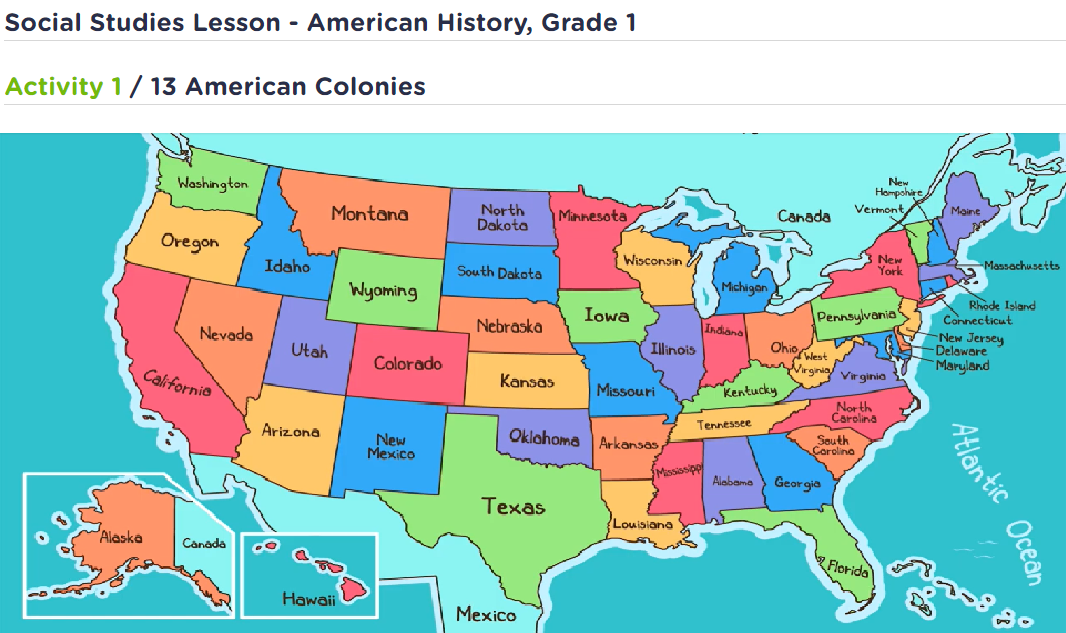Sequencing Skills Math Worksheets for Ages 5-6
7 filtered results
-
From - To
Enhance your child’s mathematical understanding with our Sequencing Skills Math Worksheets designed for ages 5-6. These engaging worksheets help young learners develop essential sequencing skills, a fundamental aspect of math comprehension. Through fun activities such as ordering numbers, recognizing patterns, and arranging sequences, kids will build a strong foundation for higher-level math concepts. Suitable for both at-home learning and classroom use, our worksheets provide clear instructions and visually appealing content to keep your child focused and motivated. Foster your child's love for math while improving their cognitive skills with our expertly crafted sequencing worksheets—perfect for curious minds ready to learn!
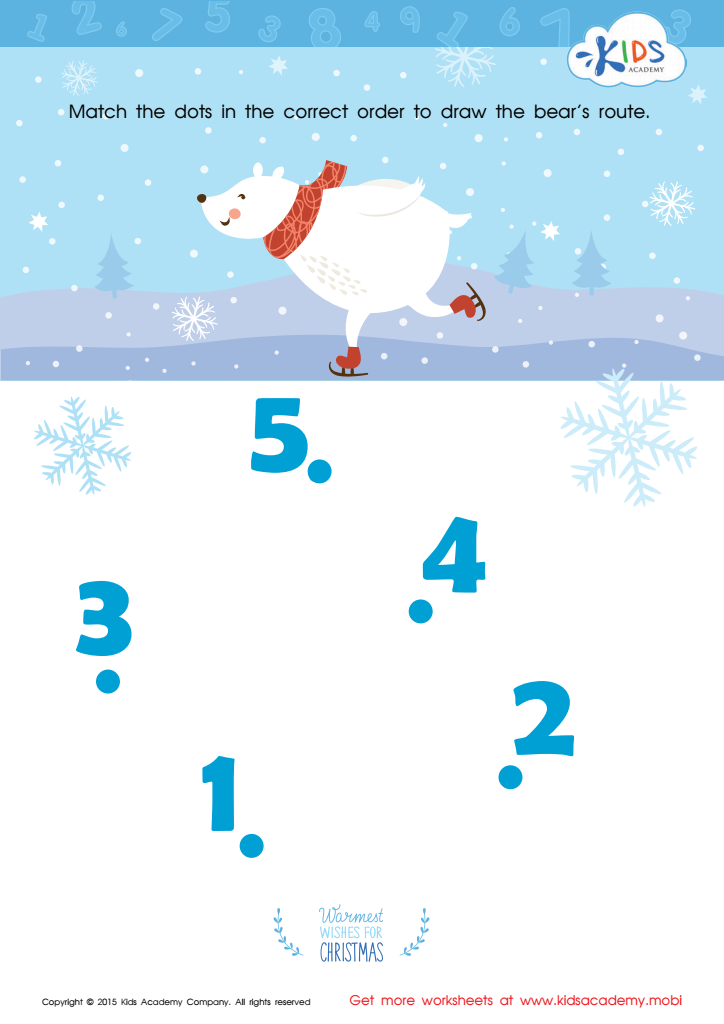

Drawing the Bear's Route by Number Worksheet
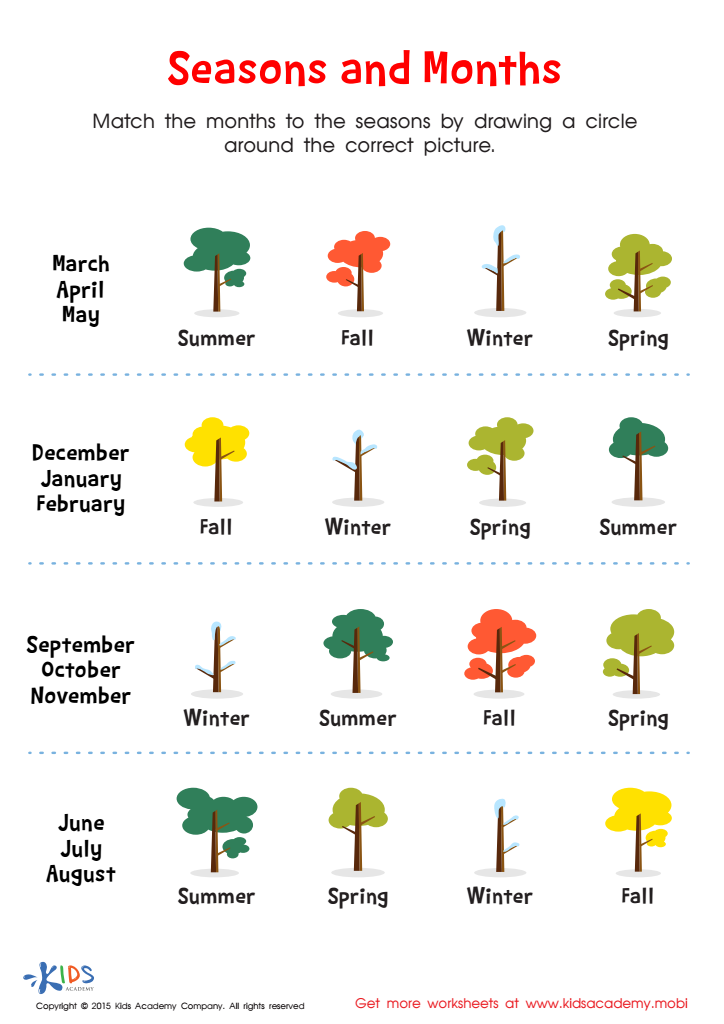

Seasons and Months Worksheet
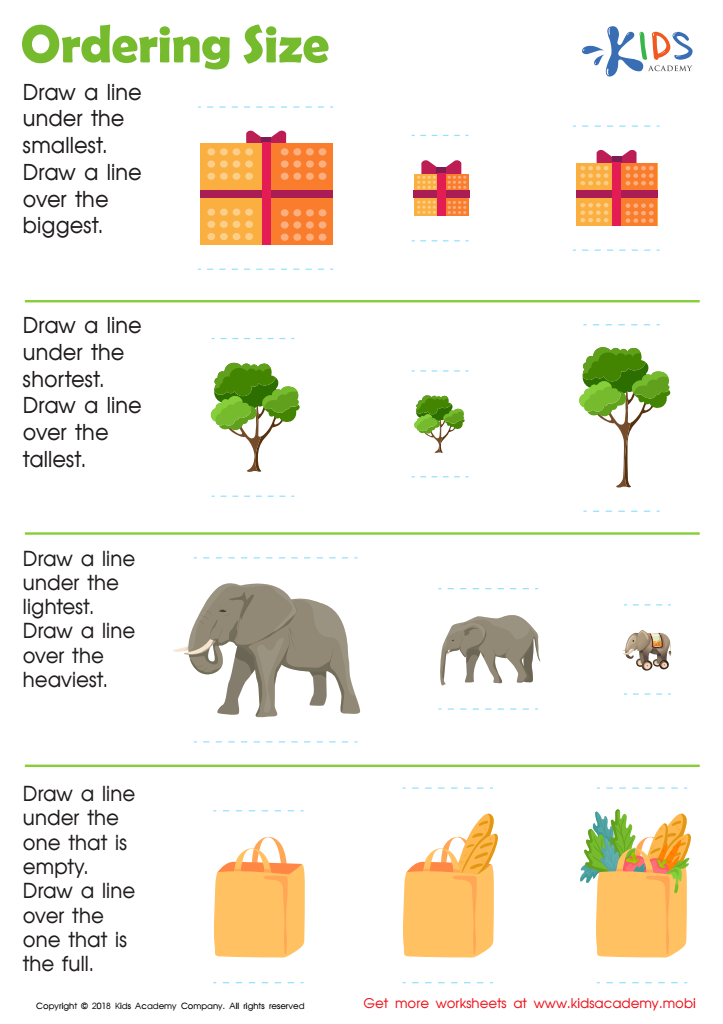

Ordering Size Worksheet
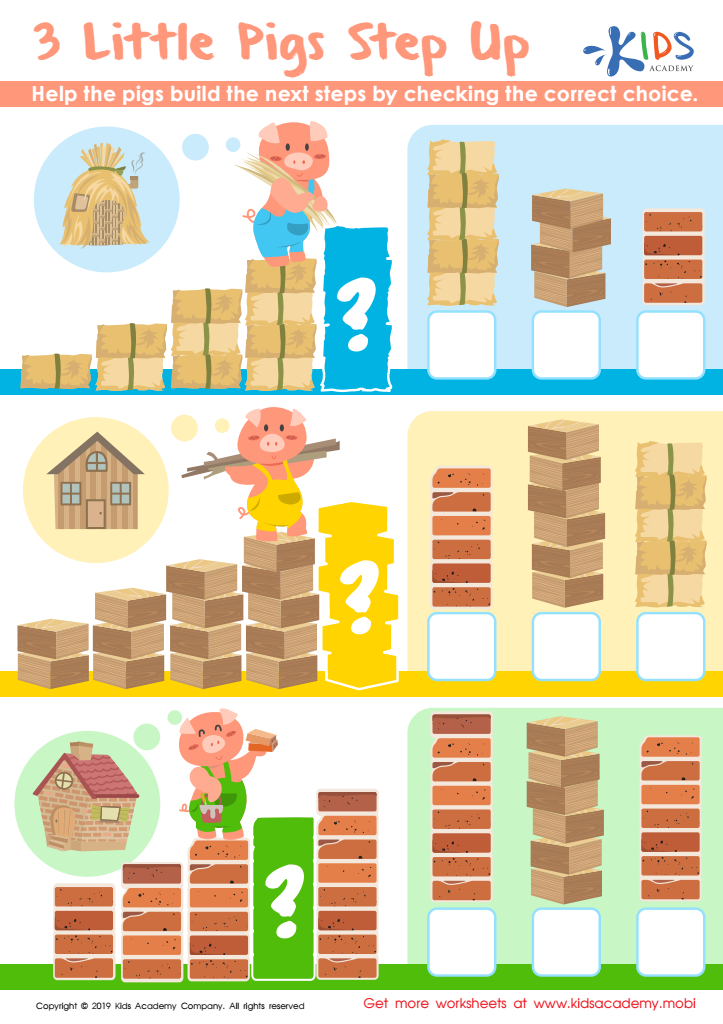

3 Little Pigs Step Up Worksheet
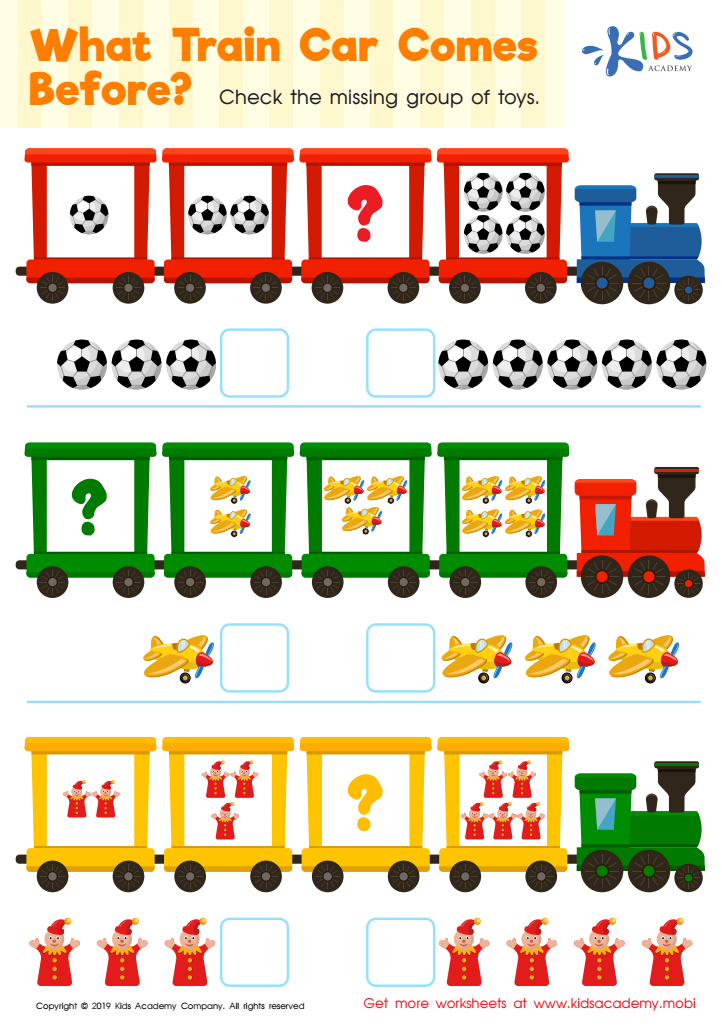

What Train Car Comes Before? Worksheet
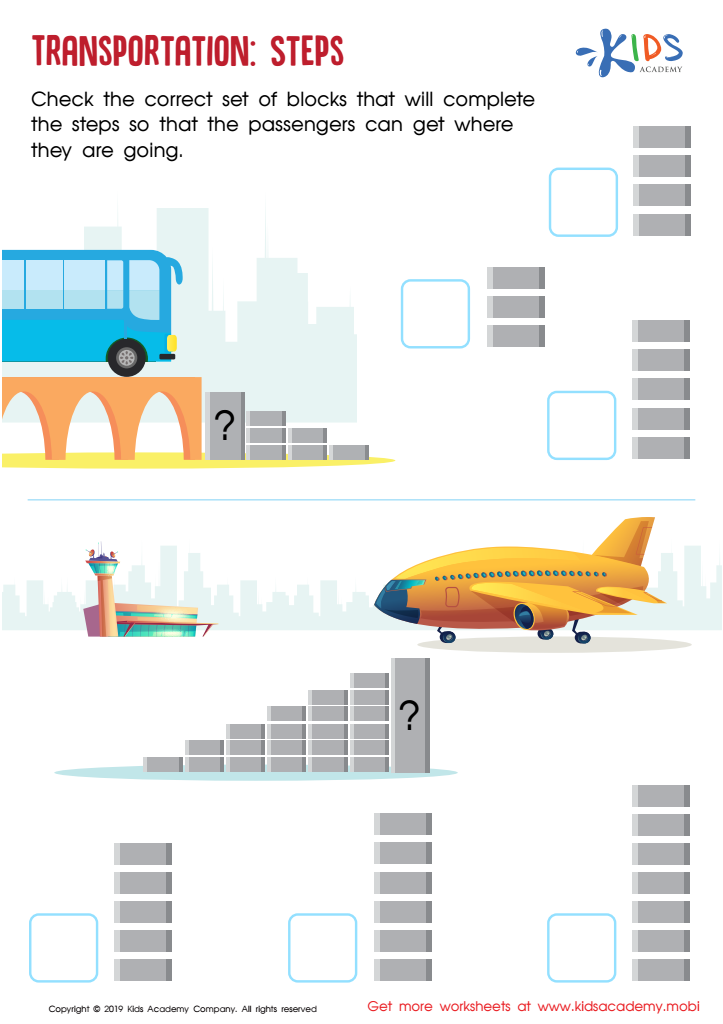

Transportation: Steps Worksheet
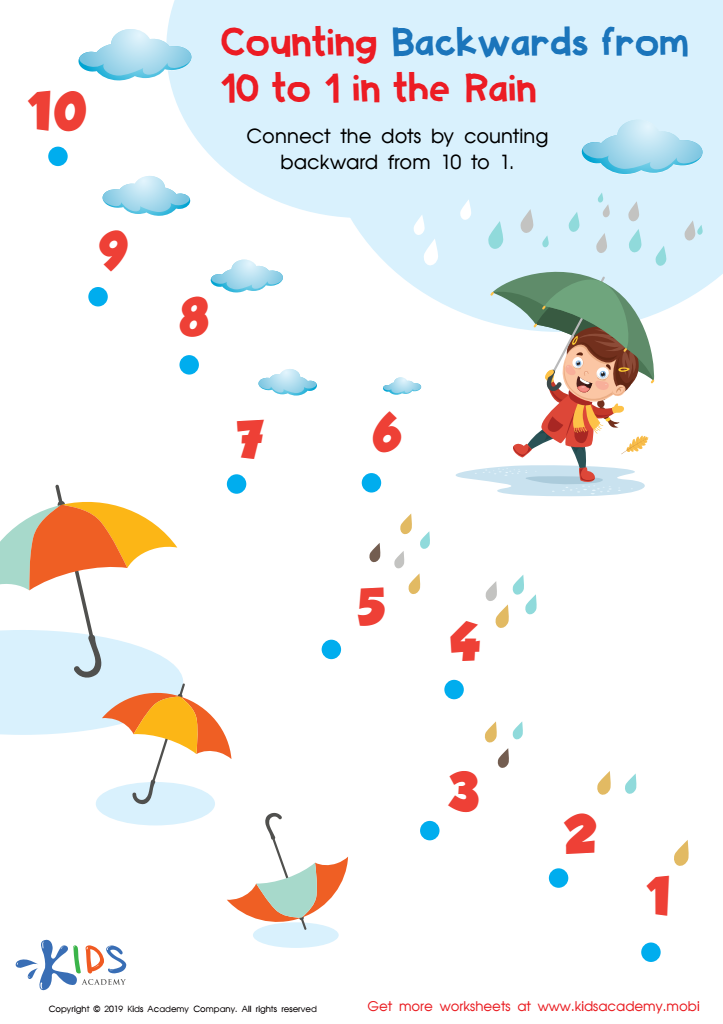

Counting Backwards from 10 to 1 in the Rain Worksheet
Sequencing skills are a foundational aspect of mathematical understanding for children ages 5-6, making it crucial for parents and teachers to prioritize their development. At this early age, children begin to learn how to organize and relate numbers, which serves as a stepping stone for more complex concepts later. Sequencing aids in building critical skills such as counting, understanding patterns, and solving problems, all of which are essential for mathematical reasoning.
Furthermore, sequencing plays a vital role in daily life. Children need to understand the order of operations in activities like baking, or the sequence of events in storytelling, fostering their logical thinking abilities. Enhancing their sequencing skills reinforces their ability to follow instructions and enhances memory retention.
Moreover, by honing sequencing skills, children develop confidence in their math abilities, which can influence their attitude toward learning overall. When parents and teachers actively engage in sequencing activities—such as games involving arranging numbers, shapes, or events—they create an enriching environment that supports cognitive development. This investment not only prepares children for future math challenges but lays the groundwork for lifelong problem-solving skills, making understanding sequencing an essential focus in the early educational experience.
 Assign to My Students
Assign to My Students








